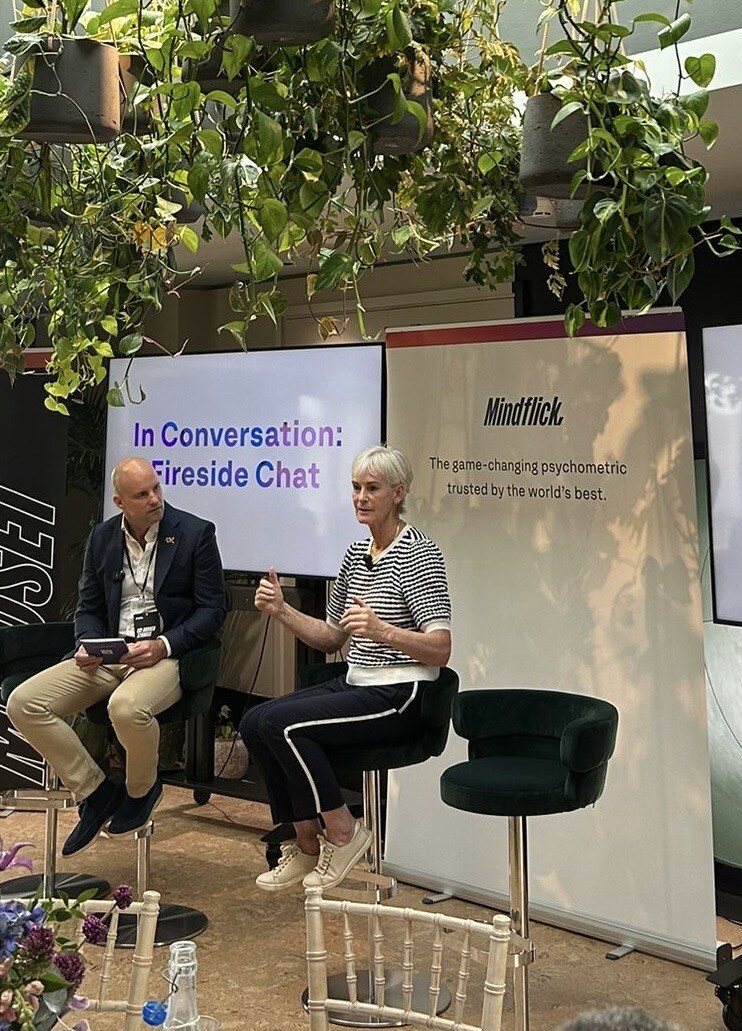Imagine you're a mouse, staring at a tantalizing piece of cheese across the room. But there's a catch—between you and that cheese is a sleeping cat. The cat represents danger, a lurking threat that could spring into action at any moment. Do you dash for the cheese, risking the cat's wrath, or do you play it safe, waiting for a better opportunity? This scenario, whimsical as it may seem, mirrors the decisions athletes face on the Olympic stage, where the stakes are high, and the outcomes are uncertain.
Under such conditions, being able to change gears when required, is crucial if we are to maximise our potential.
The COPE Model of Mindset
In the 1970s, psychologist Jeffrey Gray, through initial studies on mice, proposed the Reinforcement Sensitivity Theory, a biopsychological theory of personality. This theory describes two fundamental systems: one that drives us toward rewards, while the other warns us of potential threats. These systems, working in tandem, influence our behaviors.
We developed the COPE model of mindset to bring these systems into the forefront of our awareness, but in an intuitive way that promotes an adaptability of mindset. Each of the four mindset preferences - Contained, Optimistic, Prudent, Engaged - are created by combining a blend of either low or high sensitivities to reward or threat. The COPE model offers a simple framework that helps us to consider the value of shifting to different mindsets under different performance contexts.
Contained
The Contained mindset is a blend of low sensitivities to both reward and threat. Tapping into this mindset helps us to remain calm, measured, and consistent in our approach to performance. This can be really helpful when we need to remain focused on our goals, despite distraction, obstacles, or situations of high pressure.
Optimistic
The Optimistic mindset is a blend of high sensitivity to reward and low sensitivity to threat. Tapping into this mindset can help us to be daring, confident, and risk-taking in their approach to performance. This can be really useful when positive risk-taking, optimism, and having a willingness to do things differently are required.
Prudent
The Prudent mindset is a blend of low sensitivity to reward and high sensitivity to threat. There are times when we need to exercise care, caution, and pragmatism in our approach to performance. Such an approach can help us to prepare for and respond effectively to challenging situations, and consequently performance achievement.
Engaged
The Engaged mindset is a blend of high sensitivities to both reward and threat. Being attentive, instinctive, and intuitive in their approach to performance can be especially helpful when we need to positively respond to complex or novel situations, where information is lacking or changing rapidly.
going for gold: leveraging these mindsets
The COPE model isn't just a static categorization; it's a dynamic tool for understanding and adapting to the complexities of performance contexts. Adopting the COPE model helps us to proactively consider the following:
🟠 Where do I need to take a risk?
🟣 Where do I need to play it safe?
⚫️ Where do I need to stay calm and stick to my method?
⚪️ Where might I need to change course?
Our capacity for adaptability is perhaps most obvious in the high-pressure world of the Olympics, where the smallest difference can separate victory from defeat, the ability to shift mindsets becomes a critical skill. An athlete might need the calmness of a Contained mindset during qualification rounds, the optimism to attempt a record-breaking performance, the prudence to avoid overexertion, and the engagement to respond to an unexpected challenge.
More broadly, the COPE model reminds us that our actions are not just products of individual traits but are deeply influenced by the situations we find ourselves in. Understanding our own and others' mindset preferences can lead to more effective communication, better teamwork, and ultimately, more successful outcomes.
In the end, the COPE model offers more than just a glimpse into the psychology of high performance; it provides a roadmap for navigating the complexities of life. Whether you're an Olympian chasing gold, a business leader steering through market uncertainties, or simply someone trying to make the best of everyday challenges, understanding and adapting your mindset can be the difference between merely surviving and truly thriving.
Tags:
August 2, 2024


